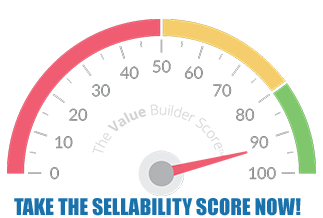This is the age-old question that just about every business owner asks themselves at some point – and of course, the short answer is “whatever someone will pay you for it”!
I’ve been dealing with business owners for over 30 years and many owners feel their business is worth considerably more than the market suggests it is. Occasionally, I find an owner who has under-estimated their business value, and it is very pleasing to inform them that I think we can get more for their business than they anticipated.
How should you determine a realistic value for a business – the answer is “statistics”! While there are multiple formulas that can be used to complete a business valuation, in the end, statistics from past transactions will be a major part of the process and will usually provide considerable influence on a buyer’s ultimate decision.
DealStats (formerly Pratt’s Stats) is a platform that boasts the most complete financial information on acquired companies in both the private and public sectors. Every transaction in DealStats is rigorously reviewed by a dedicated team of financial analysts in real time. Whether you are valuing a business, deriving a sale price, benchmarking performance or conducting fairness opinion research, you won’t find more complete and trustworthy comparable data in any other source.
DealStats reports on a quarterly basis cumulative results of this extensive analysis, providing users with the most current information available on business transactions. Additionally, as a user of the software platform, VR Business Brokers of Dallas can access specific transactional data to find comparable transactions to one we may be valuing at the time. We are also able to eliminate “outliers” on both extremes of the value scale to ensure a realistic assessment.
We have provided below summary information by DealStats on transactions reported as of the 3rd quarter of 2019. The statistics reported are based on the “Median” value within each sample grouping.
Annual revenue
Final Selling Price
$0 to $1M
$1M to $5M
$5M to $10M
>$10M
3.50x EBITDA, or 2.0x SDE as reported
4.10x EBITDA, or 2.8x SDE as reported
4.20x EBITDA, or 3.7x SDE as reported
6.70x EBITDA, or 4.0x SDE as reported
EBITDA – Earnings before interest, taxes, depreciation, amortization
SDE – Sellers Discretionary Earnings using industry standard add-back principles. This process is also referred to Normalized EBITDA.
The above results are inclusive of transactions within all industries and are based on privately held company transactions only.
As mentioned, the selling price multiples represent the “Median” value, and as one may expect, within each sample grouping there are significant ranges of multiples achieved, both from the EBITDA as well as SDE assessment. So, what are the most common factors that affect the ranges of multiples achieved?
Level of EBITDA or SDE attained – as a general guide, the higher the EBTIDA and or SDE attained above the median level within each grouping, the higher the multiple to be realized as the final sales price.
Trends in revenue and profits – businesses that have positive trends in revenue AND profits will generally attain a higher multiple than a business with equal or even slightly higher EBITDA or SDE but is experiencing negative trending.
Maturity of the business – as a general guide, a business with longevity of several years will attain a higher value for similar performance than a business that is only two to three years old. Additionally, buyers will look at the “average” performance over a two to three-year period rather than only focusing on the most recent annual performance. The point is that as a seller of a relatively new business, don’t expect a huge “spike” in your most recent year to result in maximum value for your business based solely on that year. There are exceptions to this – such as technology related companies with a recurring revenue business model.
Quality of Financial Accounting – the “cleaner” the books, the easier it is for a buyer to evaluate the business, therefore usually resulting in a higher valuation. And remember, there are likely two audiences assessing the Accounting quality – the buyer and the banker! The quality of financial accounting can be a major factor when it comes to attaining bank financing for the transaction.
There are many other factors that can affect the valuation of a business – condition of asset base, quality of management team, employee tenure, diversified customer base, industry training availability, just to name a few.
VR Business Brokers can assist you with the valuation of your business. Whether you are considering selling your business now, or several years in the future, it is important to understand the factors involved that can affect the overall value. We will help you assess EBITDA and SDE and guide you on the other elements that will affect the overall value of your business in the future.
About VR Business Brokers, Dallas, TX
VR Business Brokers of Dallas is part of the worldwide franchisor organization that has been servicing small to medium size privately held companies since 1979. VR Business Brokers of Dallas has handled transactions for privately held businesses with revenue ranging from $200,000 to $60,000,000 and assists business owners with exit strategy planning, business valuations, packaging and marketing of the opportunity, and full negotiation services through to closing. For more information about VR Business Brokers, please call 214-733-8282, or visit www.vrdallas.com.
Is now the time to consider selling your business?
Complete the “Value Builder” questionnaire today in just 13 minutes and we’ll send you a 27-page custom report assessing how well your business is positioned for selling. Take the test now:




